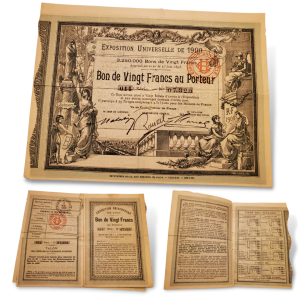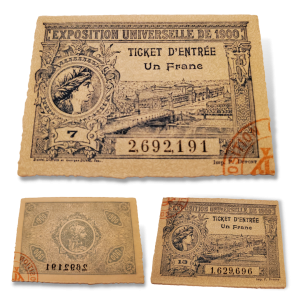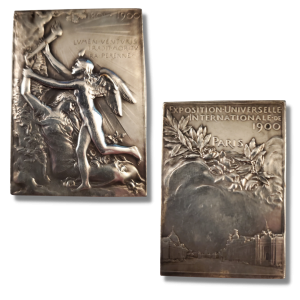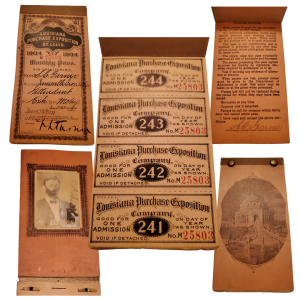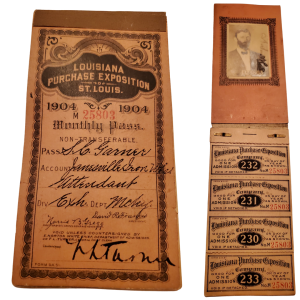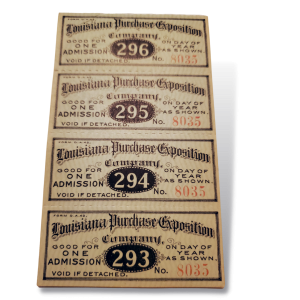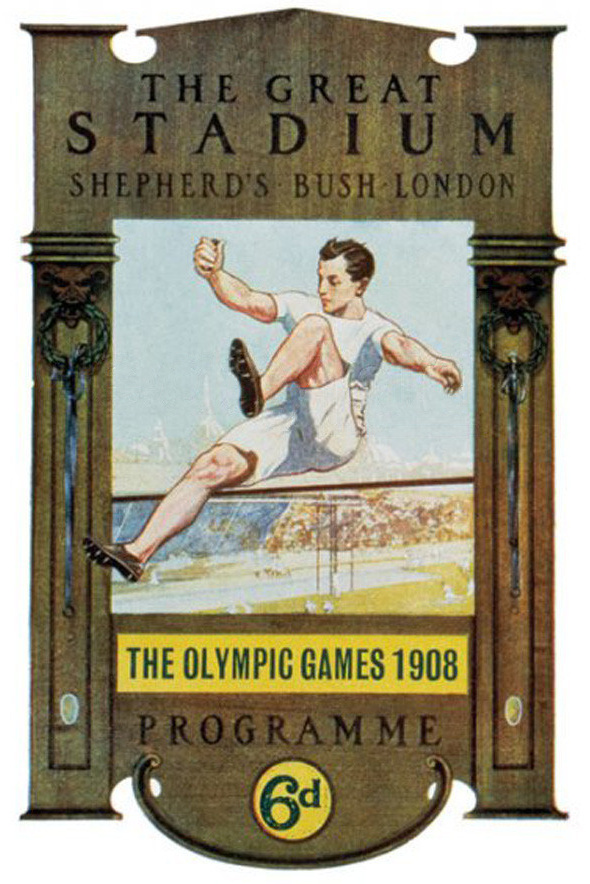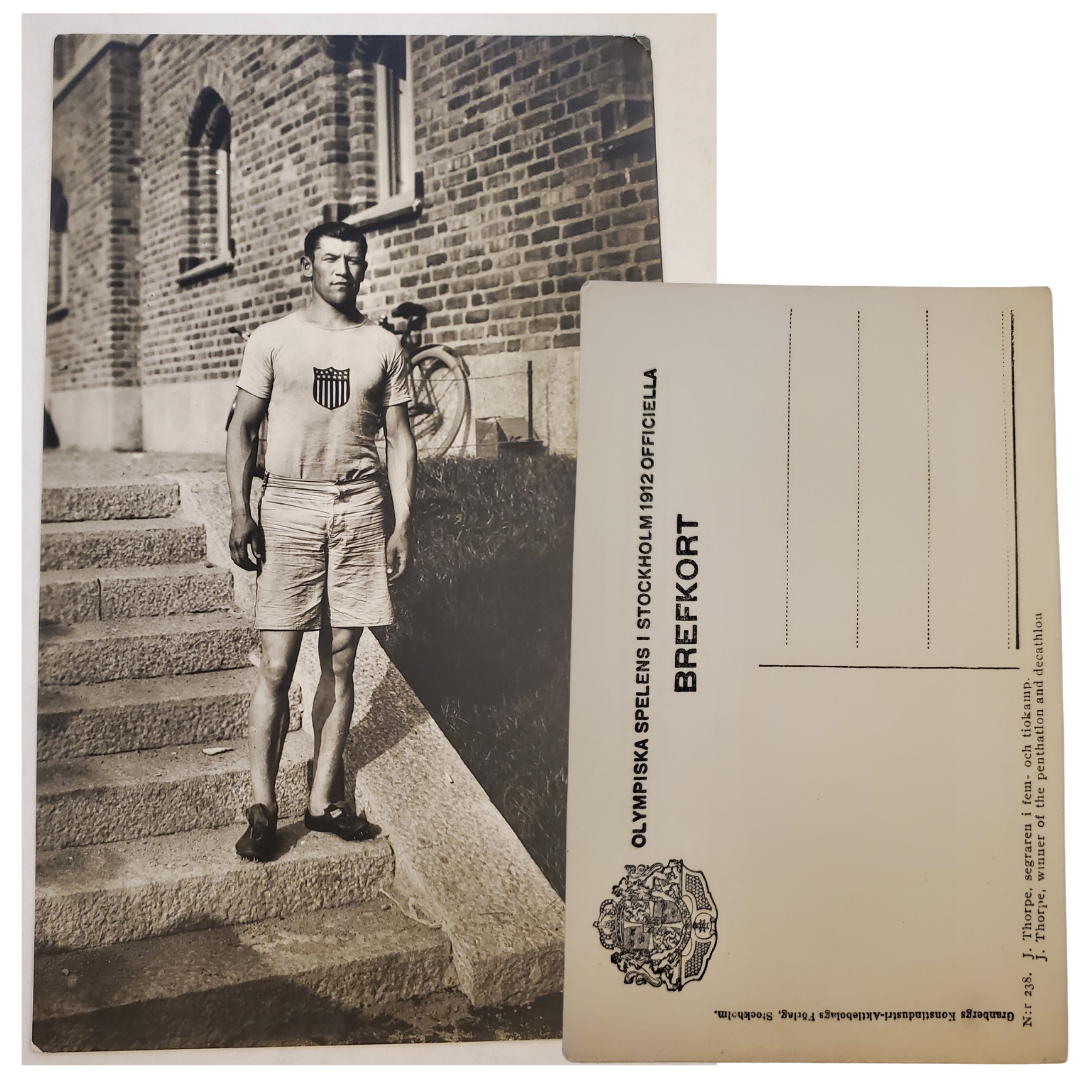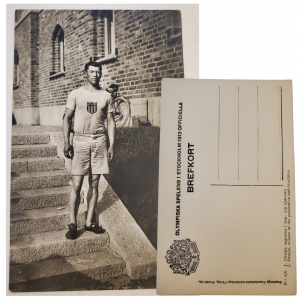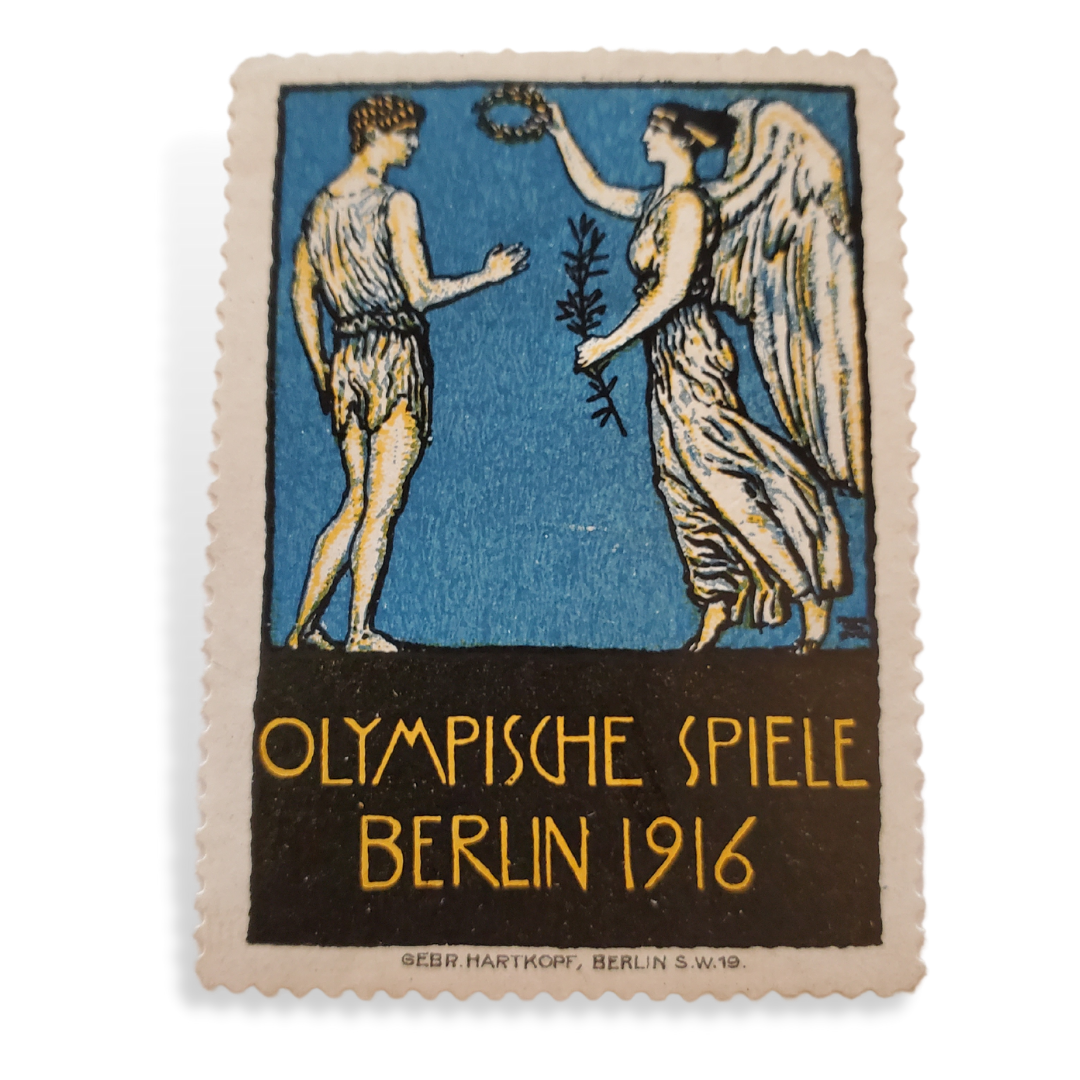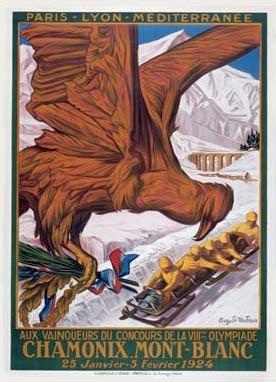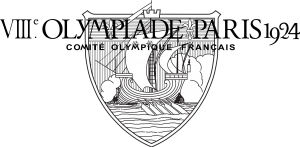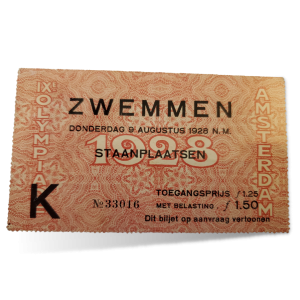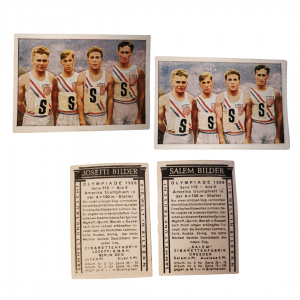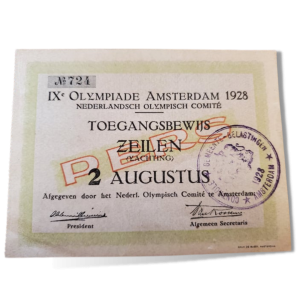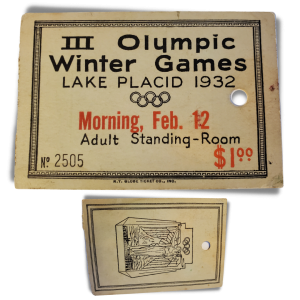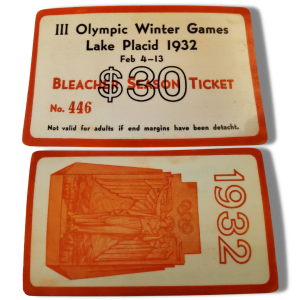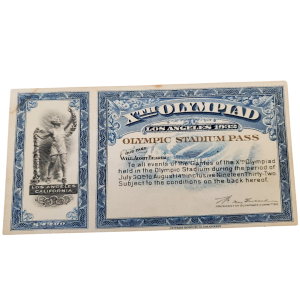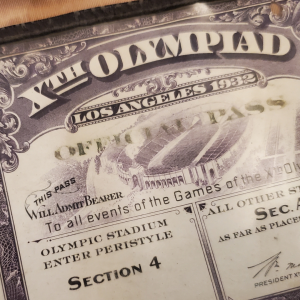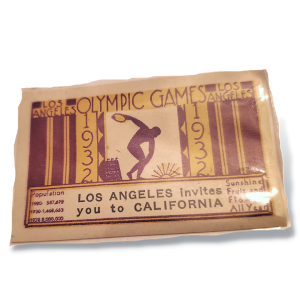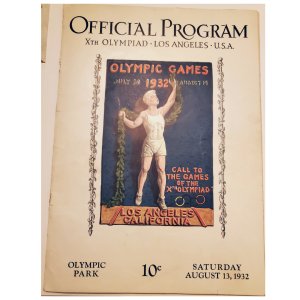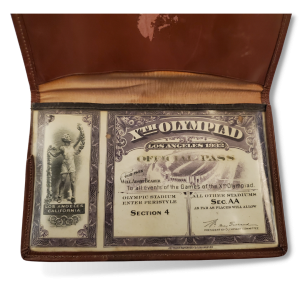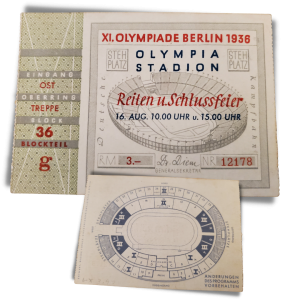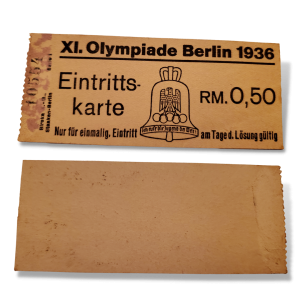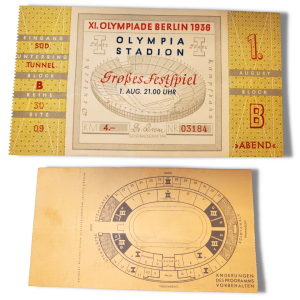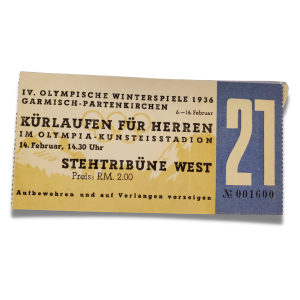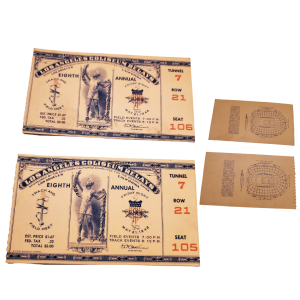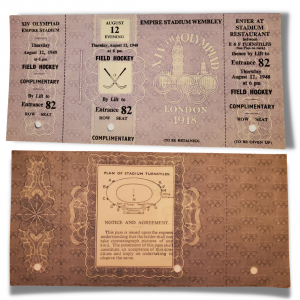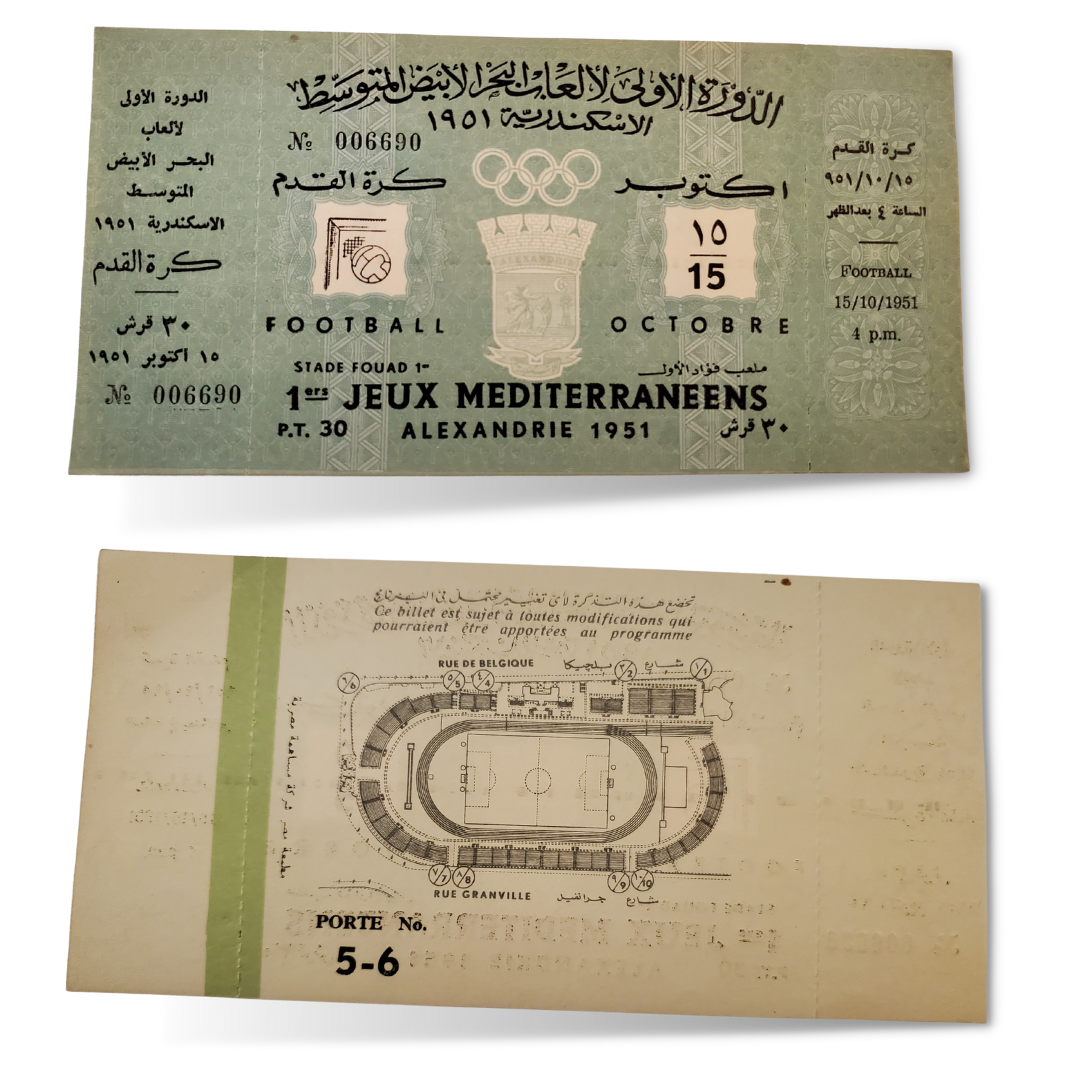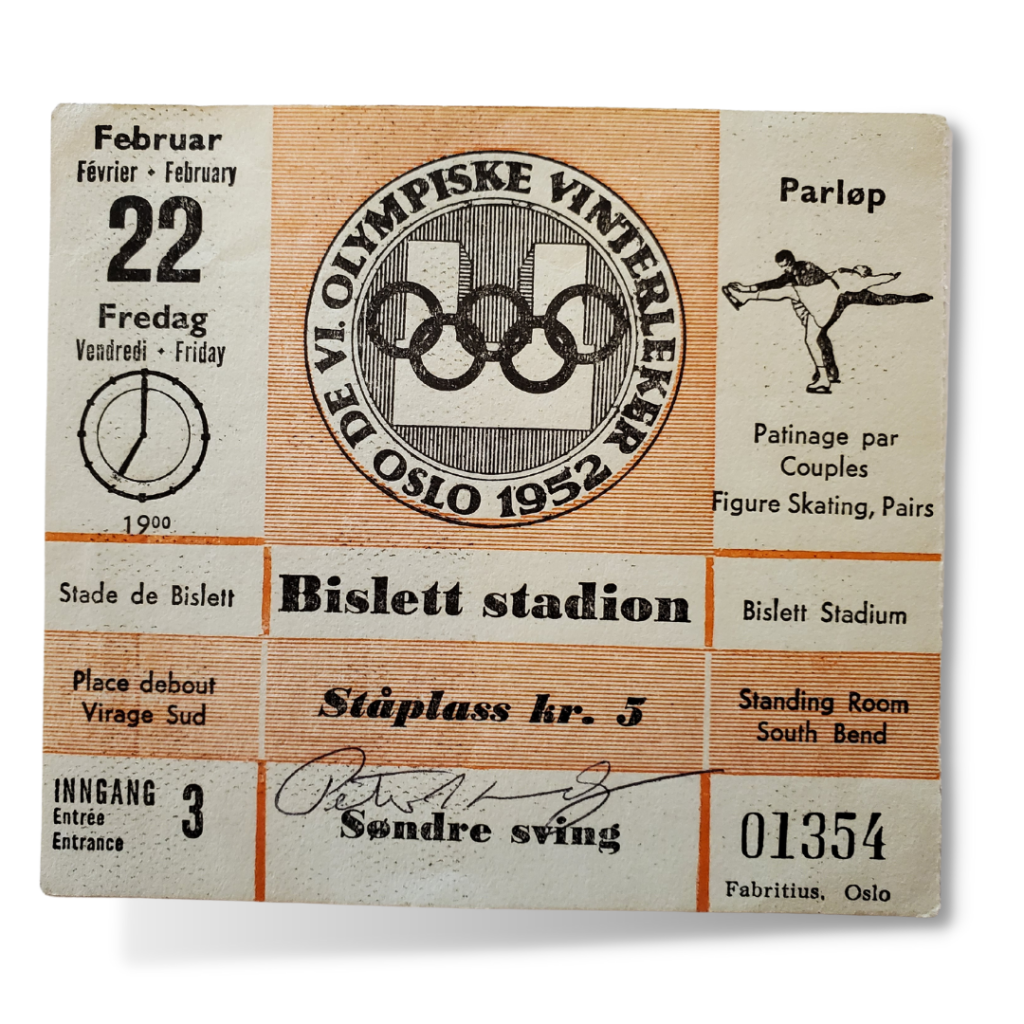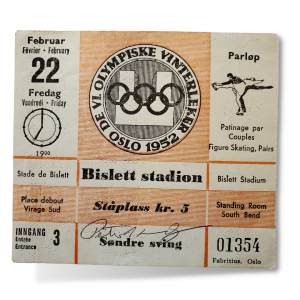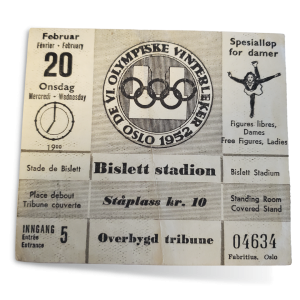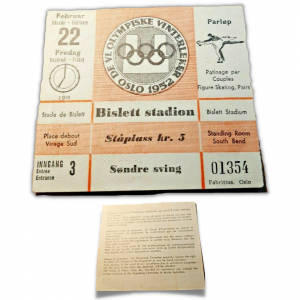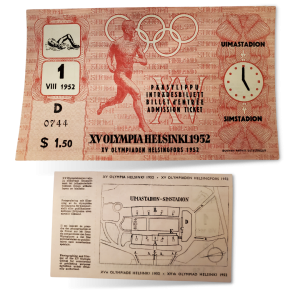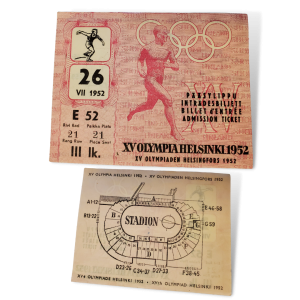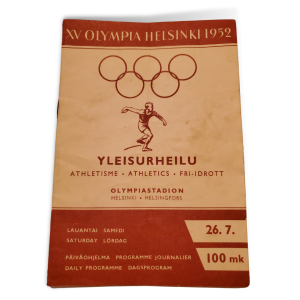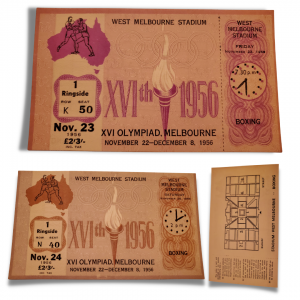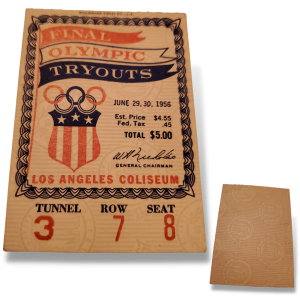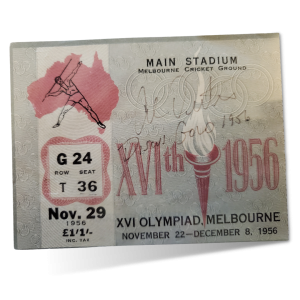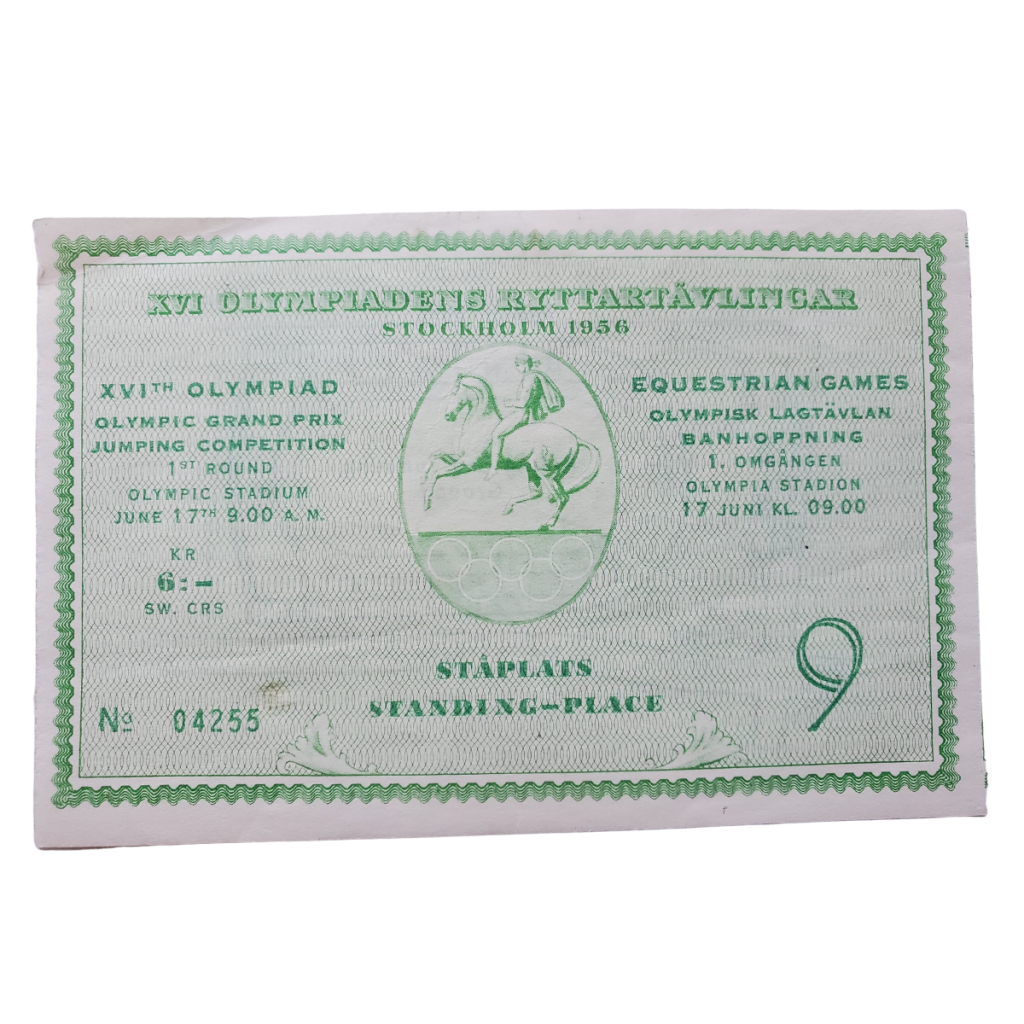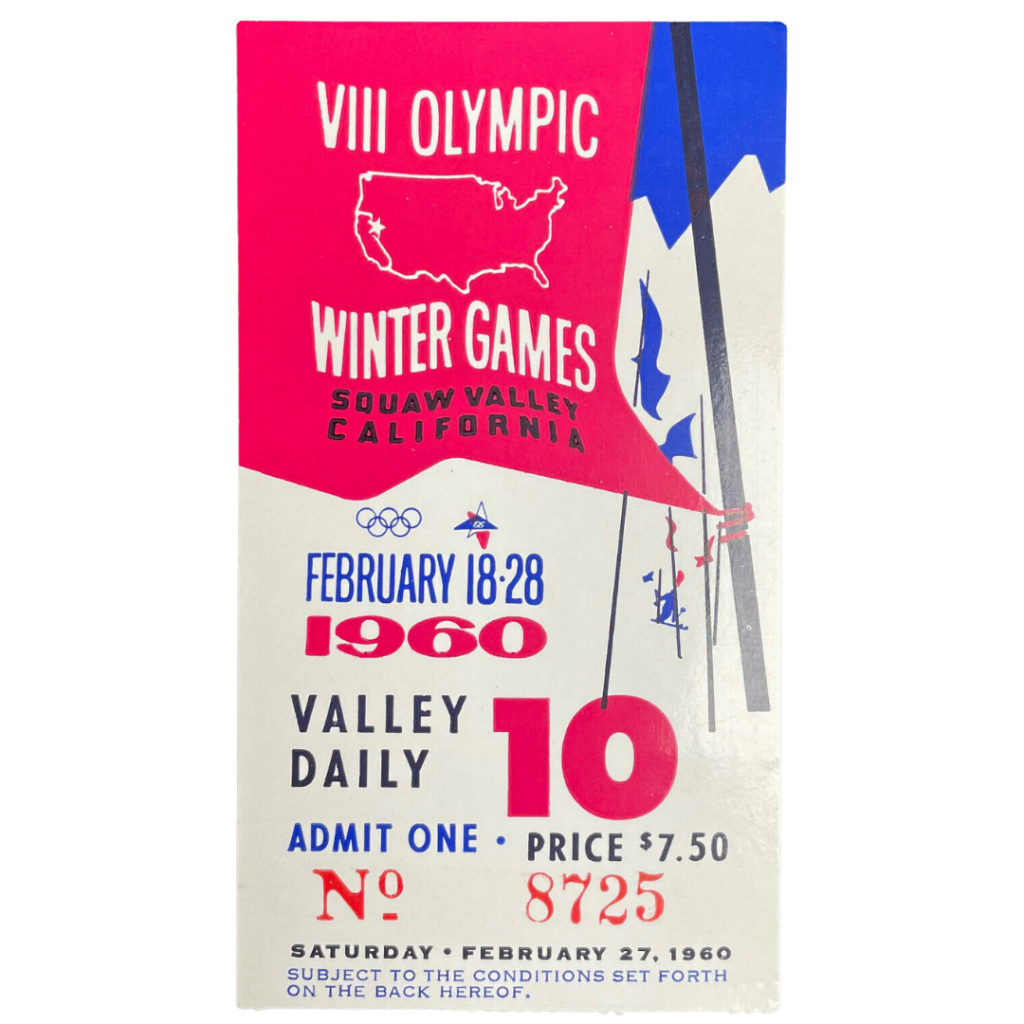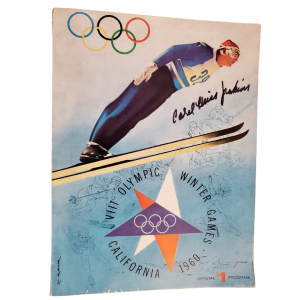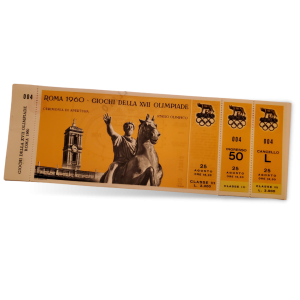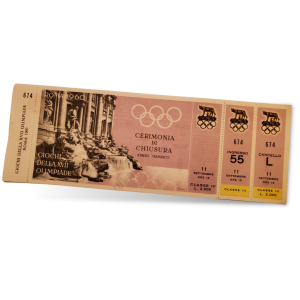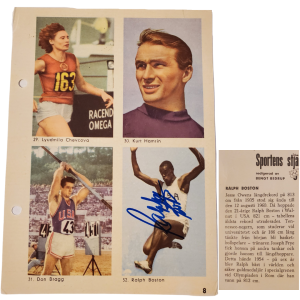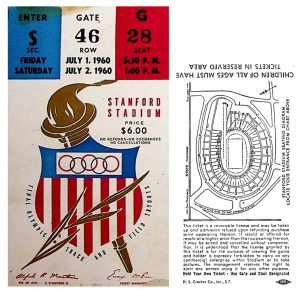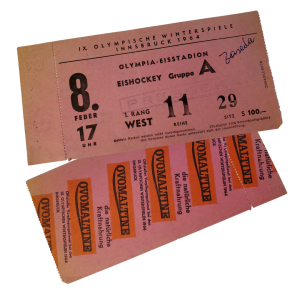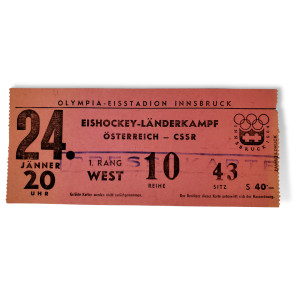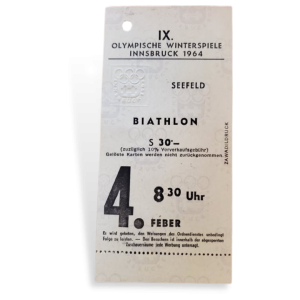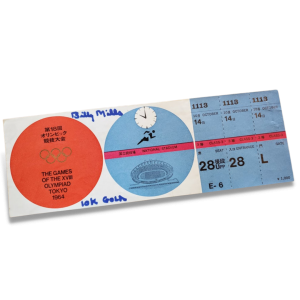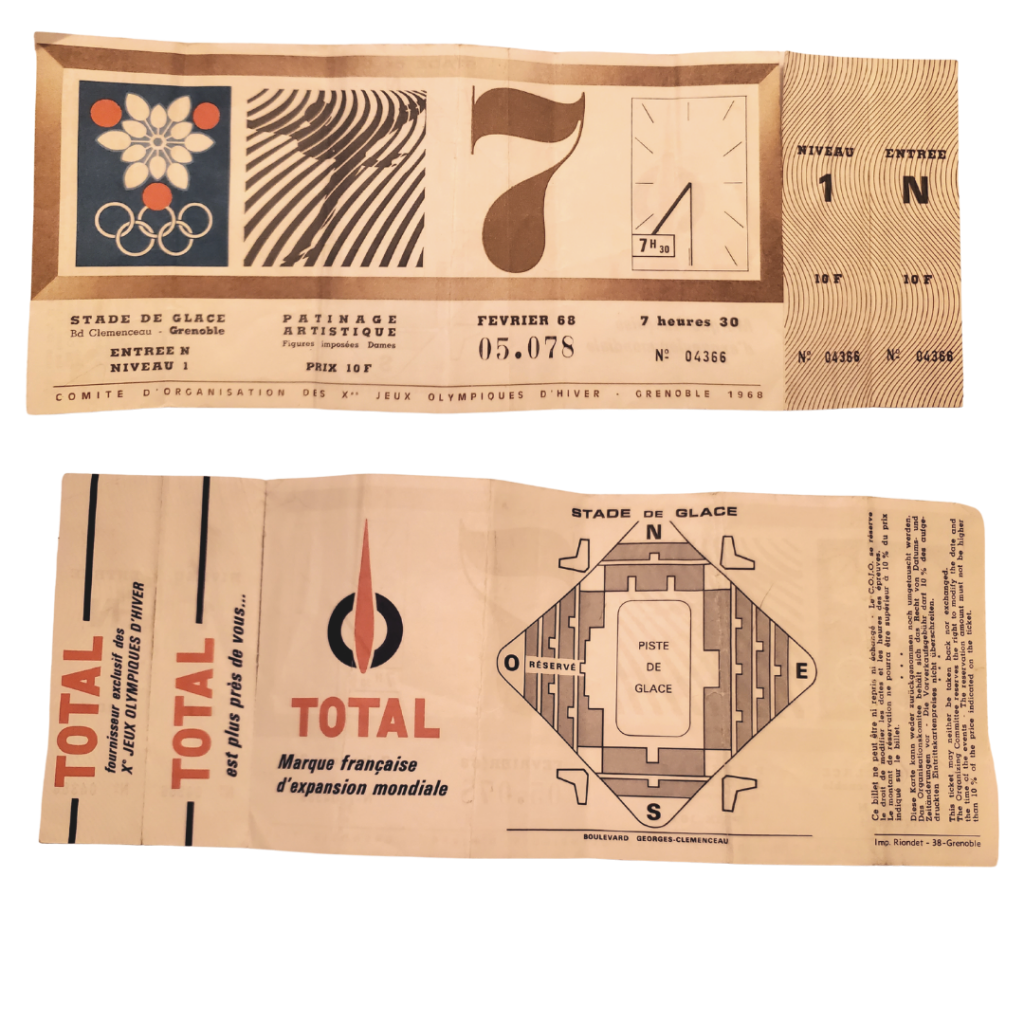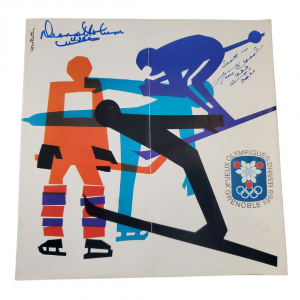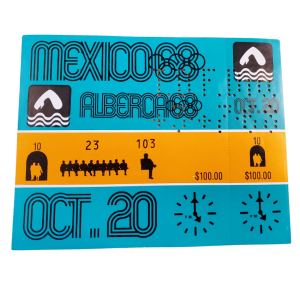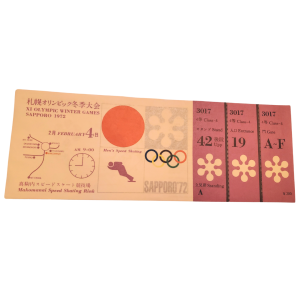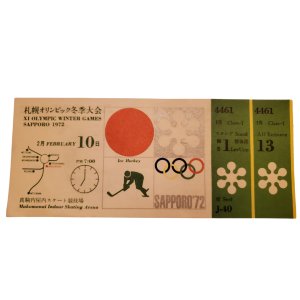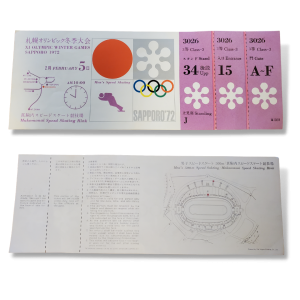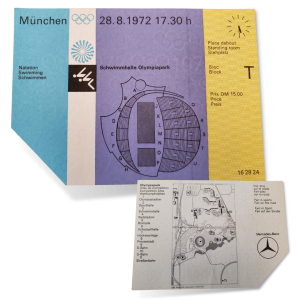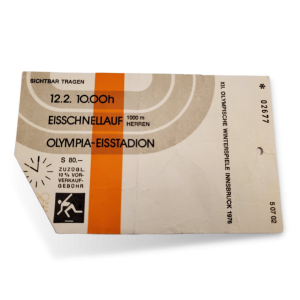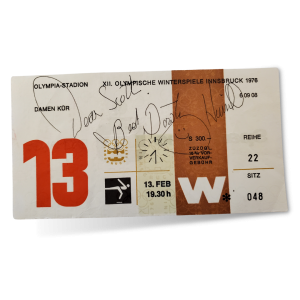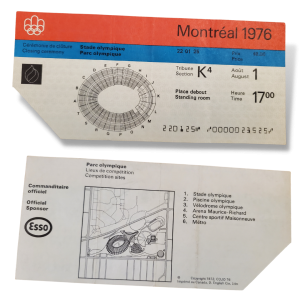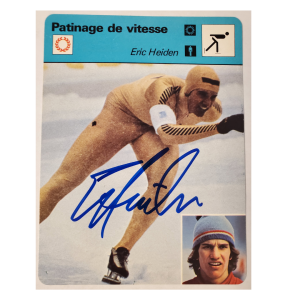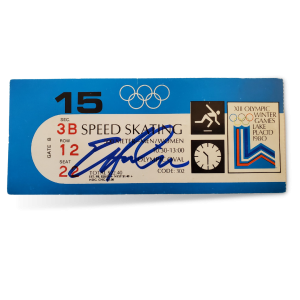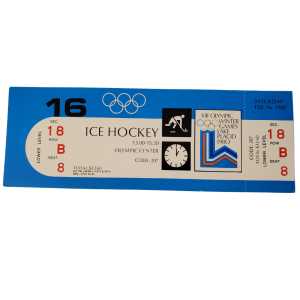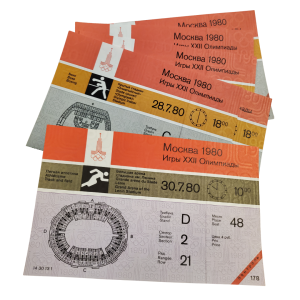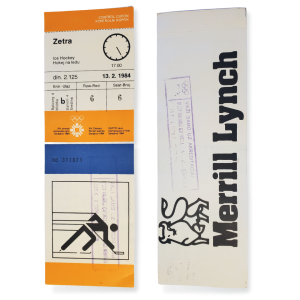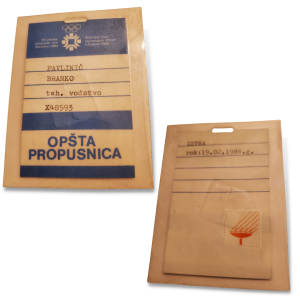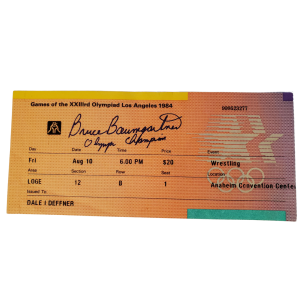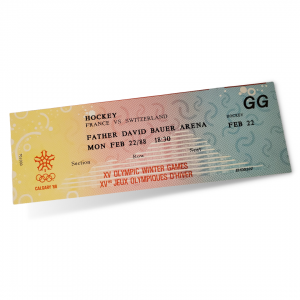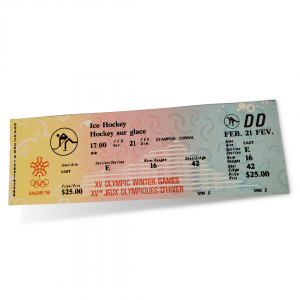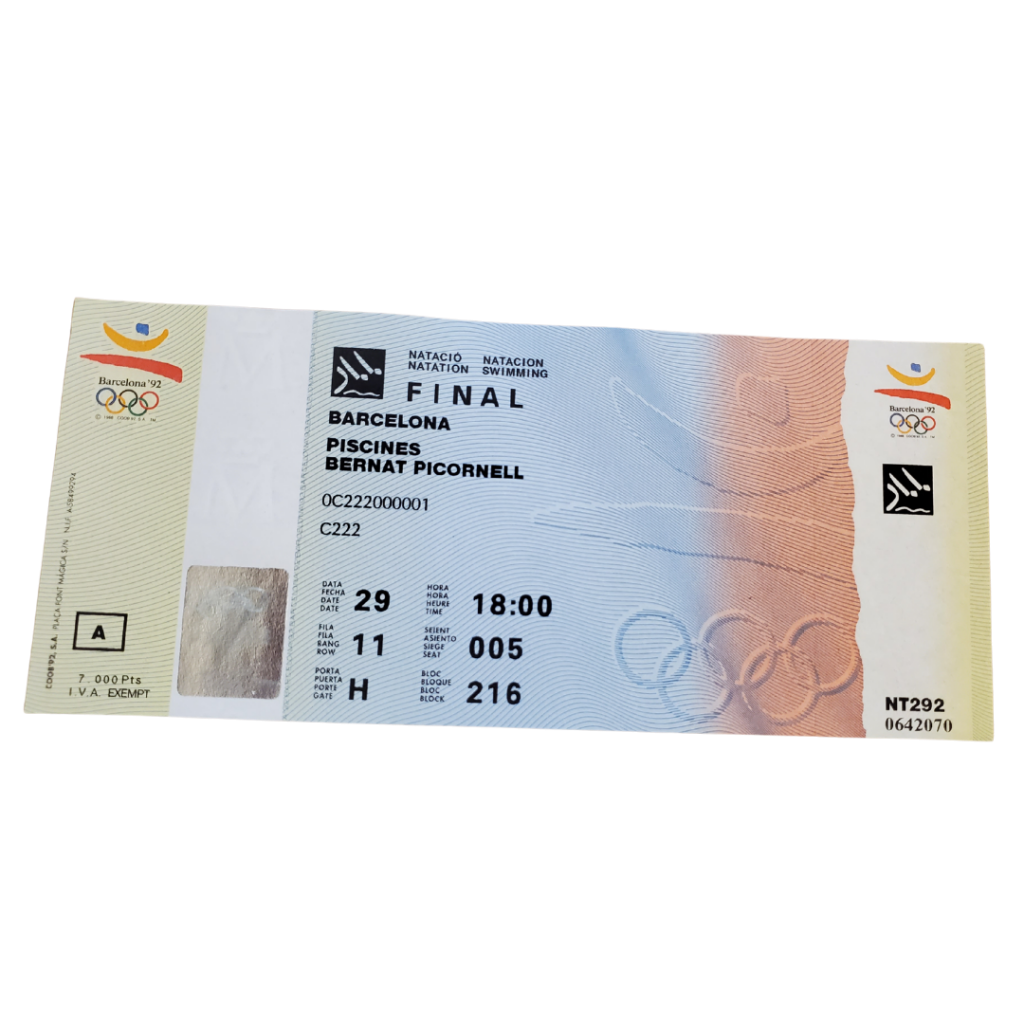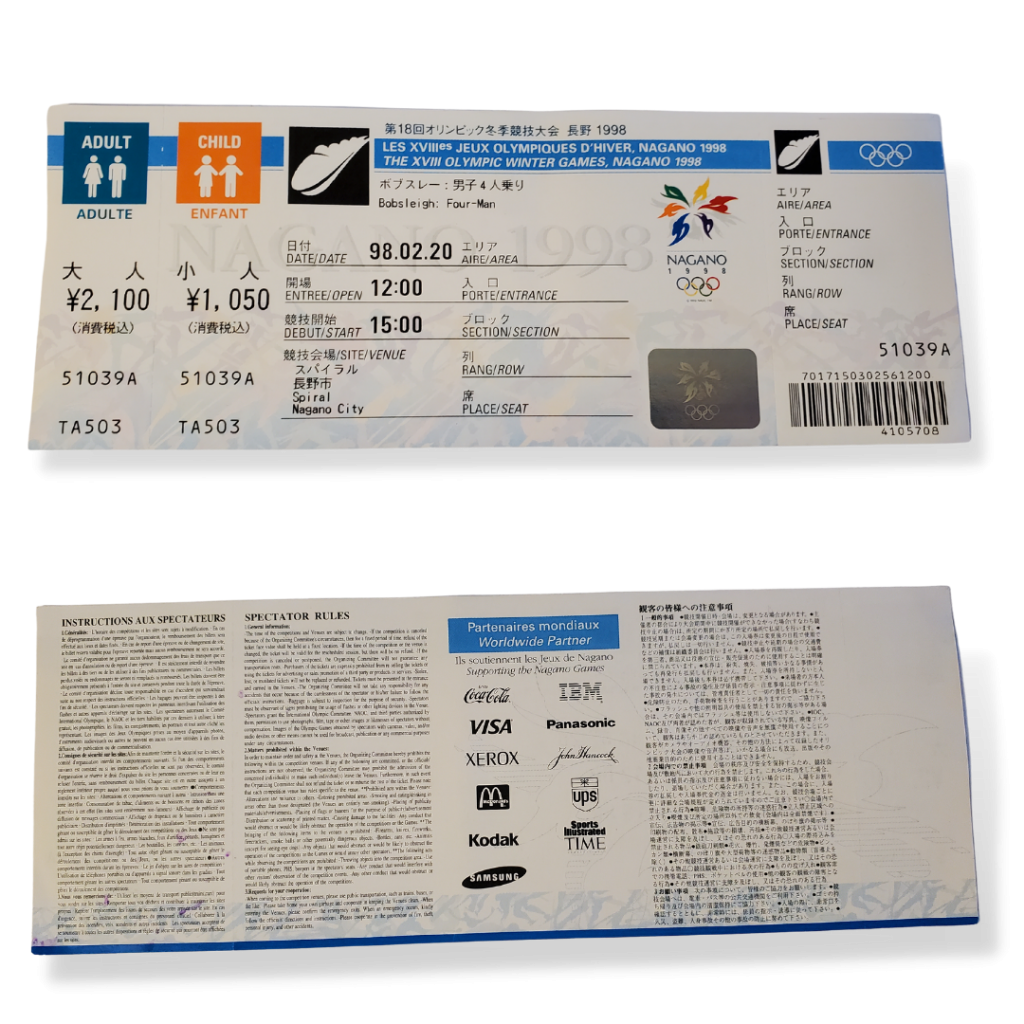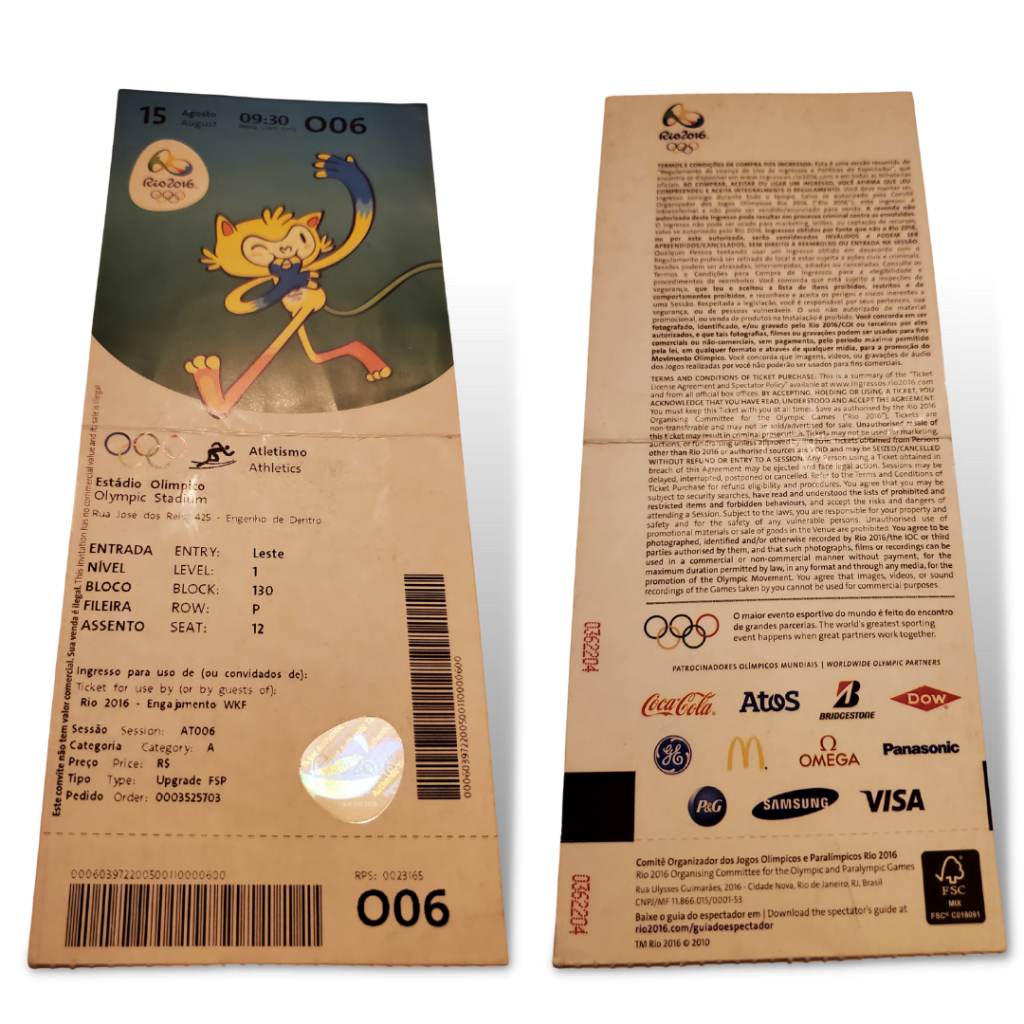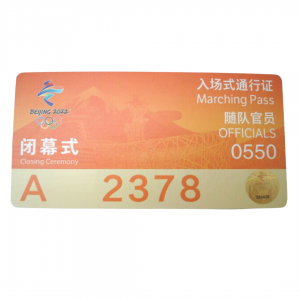1900 Olympics Tickets
Paris
The 1900 Summer Olympics in Paris (Jeux olympiques d'été de 1900) were held as part of the 1900 World's Fair. Nearly 1,000 competitors took place in events. There were no opening or closing ceremonies and in fact many athletes were not aware that they were completing in the Olympics.
Alvin Kraenzlein, the US Olympic Hall of Fame's earliest Inductee, won 4 individual gold medals.
Bonds were issued to raise funds for the Olympics and they were issued as 20 Francs for the Paris 1900 Exposition, exchangeable for tickets at a reduced price.
A mixed team from Sweden and Denmark beat The Racing Club of France in the Tug of War Competition. 1920 was the last Olympics where Tug of War was a sport.
1904 Olympics Tickets
St. Louis + Louisiana Purchase Exposition
The Louisiana Purchase Exposition of 1904 served as the 1904 Olympics. This year long event was much larger than the Olympics - in fact Athletics competitions only comprised 5 days. Tickets were issued for specific days and the Olympics dates were August 29-September 3, corresponding to day numbers 242 through 247.
Included are examples of daily tickets and a Monthly Pass issued.
First Gold, Silver, Bronze
The 1904 Olympics first introduced the Gold, Silver, Bronze medal format. Boxing, Dumbbells, Freestyle Wresting, and the Decathlon also made their debut at this Olympics.
Baseball Debut
Baseball also made its debut as a Demonstration Olympic Sport in 1904, allowing the popular US sport to be showcased at the first non-European Olympics.
1932 Olympics Tickets
Lake Placid
The 1932 Winter Olympics held in Lake Placid were a showcase in the US of winter sports like no other. Tickets were issued as hard cellulite passes - they're even thicker than a credit card.
Several Olympic Hall of Fame members competed in the games including Eddie Eagan (USA), Sonja Henie, Jack Shea, and Irving Jaffee.
Coca-Cola's First Olympics
The 1932 Lake Placid Olympics marks the first time Coca-Cola was the official provider of soft drinks and has held that distinction ever since.
1932 Olympics Tickets
Los Angeles
The 1932 Summer Olympics in Los Angeles were the first time athletics at such a massive scale were showcased.
Over 16 days, the schedule included Single Event Reserve Tickets, Single Event General Admission Tickets, and Season Tickets. Season Tickets were split up into two different categories - a Stadium Pass that would allow the holder to have the same seat at all events at one venue, and a Season Ticket for individual sports that allowed a reserved seat at certain events (Boxing, Fencing, Wrestling, Swimming, Rowing).
Stadium Passes clocked in at a whopping $22 and were produced in blue and green varieties, designating the stadium side where seats are located.
Jefferies Bank note printing style was used for most tickets to prevent forgeries. General Admission Tickets were printed by Hancock Brothers, as noted by the HB on the verso.
First Olympic Village
The 1932 Olympics in LA featured the first purpose built Olympic Village that would be a model for future years. Male athletes were housed in Baldwin Hills while female athletes were housed at Chapman Park Hotel or Wilshire Boulevard
First Olympic Mascot
Smokey, a Scottish Terrier was the first mascot to be featured at an Olympics games.
1936 Olympics Tickets
Berlin
Germany’s 1936 Berlin Summer Olympics was first mass marketed Olympics event in history. With rising pride in the country, the organizers wanted to show off their own athletes and success.
The tickets were Werner Beucke and printed by the Leipzig based Giesecke & Devrient Press.
Design and longevity played a large role in the ticket production. The Print, Color and Size of the tickets were carried so they could be easily distinguishable. The possibility for fake forged tickets was reduced with the design. Take your ticket home was the message with the artistic design and woodblock print in the center of each ticket.
Tickets had 4 primary categories. Tickets for the Olympic Stadium, Tickets for other Areas of Competition that included a depiction of the Olympic Bell, July 1, 1936 post printed tickets - nearly 100,000 tickets were printed after this date. Blanket Passes, these are used in lost ticket instances or other complimentary needs.
Reserve Stadium Seating tickets were produced in 6 different colors.
Over 660 different ticket types were created for the Berlin Olympics - Nearly 4x more than the previous summer Olympics in LA.
First Olympics Torch Relay
Having an eye for a rememberable moment and one that spans the globe, the organizers of the 1936 Olympics created the first modern day torch relay.
"The sportive, knightly battle awakens the best human characteristics. It doesn't separate, but unites the combatants in understanding and respect. It also helps to connect the countries in the spirit of peace. That's why the Olympic Flame should never die."
— Adolf Hitler, commenting on the 1936 Berlin Olympic Games.
The People's Olympiad
Barcelona lost out to Berlin due to some questionable voting for the 1936 Olympics site selection. And they organized the People's Olympiad to complete with Berlin's Olympics, with support from Joseph Stalin. The event was never held due to Spanish Civil War, although, tickets do exist for the event.
1936 Olympics Tickets
Garmisch-Partenkirchen
The 1936 Winter Olympics was held in the Bavarian region of Germany and represents the last time that a summer and winter Olympics was held in the same country for a single year.
Alpine Skiing made its debut with German athletes winning both Men's and Women's Alpine events. Sonja Henie won her 3rd consecutive Gold Medal in figure skating.
The United States struggled to medal in any significant way at this Olympics, however they won 1 gold in 2 man Bobsleigh, a bronze in 500 m speed skating, a bronze in 2 man bobsleigh, and a bronze in Men's Hockey.
Tickets were very colorful, I have found red and blue tickets.
I believe this ticket is from the final round of Men's Skating - Free Skate Round. Karl Schäfer from Austria won this round and went on to win the Gold Medal. 3 Americans competed in this event but did not medal.
Ice Hockey Drama
The biggest upset of the Games occurred in the ice hockey competition, Great Britain defeating Canada to win its only gold medal in the event. Controversy over the eligibility of several British players, however, clouded Britain’s victory.
1948 Olympics Tickets
London
The 1948 London Olympics marked the first post war Olympics and was hosted by a war ravaged London that wanted to return to normalcy and showcase their city.
Tickets were not issued as "Season Tickets" for the first time due to significant demand for Olympics tickets, especially from overseas visitors.
Series tickets were issued due to increased international demand and attendance. Specifically for attendees to watch their country's Olympian compete at all stages of an event.
We have seen tickets in blue, green purple, pink, grey, light blue, and red.
Tickets were allocated 50% to UK entities and 50% for overseas buyers - and this was based on the likelihood and popularity of sports in those countries. Over 1,247,000 visitors attended the games.
£1,000 TV Coverage Rights
BBC paid £1,000 (£11,351.33 in US 2021 numbers) for the rights to share the Olympic games to a mostly London centric audience. Although it's reported that viewers may have been able to see the games as far away as the Channel Islands.
It's estimated that 500,000 people saw the broadcast.
1952 Olympics Tickets
Oslo
1952 Oslo
1952 Olympics Tickets
Helsinki
Ticket shown represents the gold medal finals for the Decathlon, in which Bob Mathias won Gold. He is in the US Olympics Hall of Fame.
The Program below represents the same event.


